Menopause
How to submit an article:
- Registered users can submit any published journal article that has a unique DOI (Digital Object Identifier) name or link to Research Hub.
- For example, you can paste the full DOI link:
https://doi.org/10.1109/5.771073or just the DOI name:10.1109/5.771073into the field above and click submit. - The person who is first to submit a valid article to Research Hub will forever be credited for it, and every article submission earns you +6 Research Points.
Also known as: Menopausal Syndrome, Perimenopausal Syndrome
Sub-Topics:
Related Topics
Published research studies are articles that present the findings of original research that has undergone a peer-review process and has been made publicly available in scholarly journals, books or other media.

A dietary intervention for postmenopausal hot flashes: A potential role of gut microbiome. An exploratory analysis
2023 Dec Complementary Therapies in Medicine Kahleova H, Holtz DN, Strom N, La Reau A, Kolipaka S, Schmidt N, et al.
Randomised Controlled Trial Hot Flushes Plant-Based Diet Low Fat Diet Gut Microbiota SoybeanChanges in gut microbiome associated with a low-fat, vegan diet and cooked soybeans may reduce the frequency and severity of postmenopausal hot flashes.
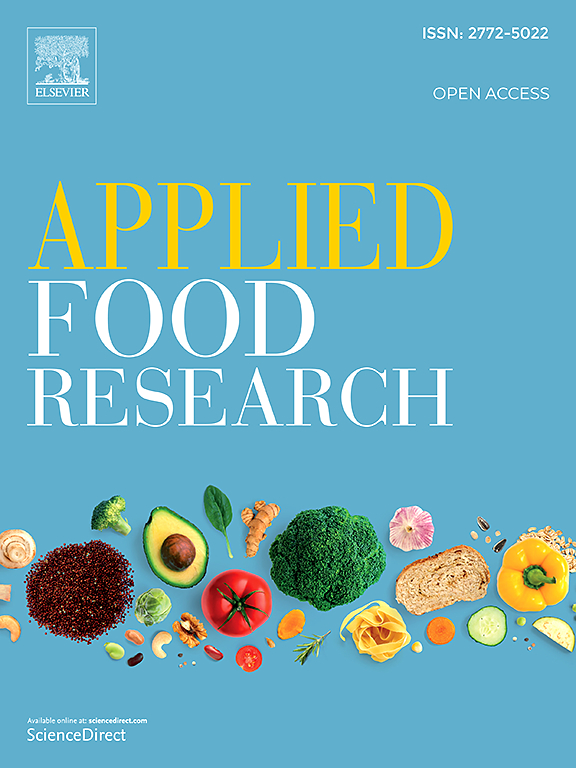
Estrogenic activity of fermented soymilk extracts and soy compounds
2023 Dec Applied Food Research Nishi K, Imamura I, Takemoto T, Iga K, Kiyama R
The study demonstrates the estrogenic activity of soymilk extracts and soy compounds, with greater activity observed after fermentation, highlighting complex mechanisms at the transcription level. RNA-sequencing analysis revealed up-regulation of genes related to cell division/cell cycle and DNA replication/DNA repair and down-regulation of genes associated with autophagy, suggesting enhanced cell proliferation. The estrogenic activity of soymilk extracts and soy flavonoids, especially after fermentation, offers potential pharmacological benefits, including bone protection, cancer chemoprevention, neuroprotection, and the treatment of menopausal syndromes.
Experimental Study Menopause Soy Milk
Pomegranate effects on the health aspects of women during peri‐ and postmenopause: A systematic review and meta‐analysis
2023 Nov 06 Phytotherapy Research Moeini R, Shirafkan H, Gorji N
Systematic Review Women's Health Menopause Pomegranate Hot FlushesPomegranate can significantly enhance women's health during and after menopause by reducing hot flashes severity and other menopause symptoms.
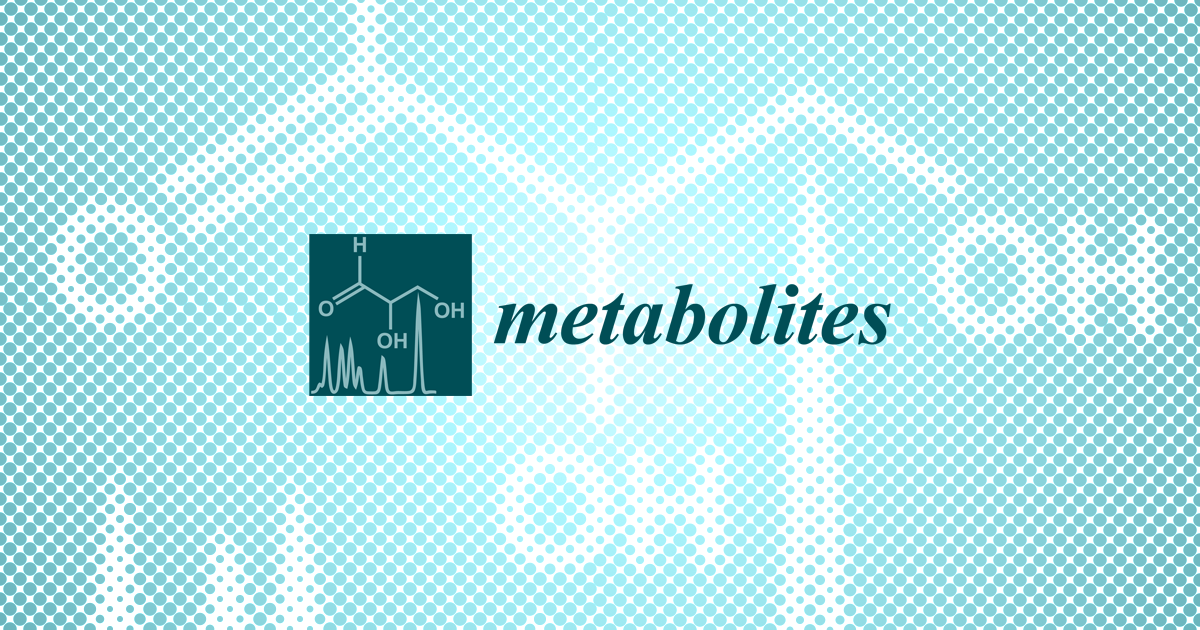
Supplementing Low-Sodium Bicarbonate–Calcic (Lete)® Water: Effects in Women on Bone and Systemic Metabolism
2023 Oct 24 Metabolites Marino C, Pagano I, Castaldo G, Grimaldi M, D’Elia M, Santoro A, et al.
Clinical Study Mineral Water Osteoporosis MenopauseConsuming bicarbonate-calcium mineral water, low in sodium, can help manage calcium imbalance and support bone health in perimenopausal women.

Anti-Menopausal Effect of Soybean Germ Extract and Lactobacillus gasseri in the Ovariectomized Rat Model
2023 Oct 23 Nutrients Lee SH, Lim TJ, Yun EJ, Kim KH, Lim S
Animal Study Experimental Study Menopause Soybean BacillusA combination of soybean germ extract and a probiotic significantly improved menopause-related conditions and mood in an ovariectomized rat model.
Research insights are moderated by the Research Hub team and offer an at-a-glance overview of interesting research findings.

2023 Complementary Therapies in Medicine
Changes in gut microbiome associated with a low-fat, vegan diet and cooked soybeans may reduce the frequency and severity of postmenopausal hot flashes.
Randomised Controlled Trial Gut Microbiota Hot Flushes Low Fat Diet Plant-Based Diet Soybean
A dietary intervention for postmenopausal hot flashes: A potential role of gut microbiome. An exploratory analysis
Kahleova H, Holtz DN, Strom N, La Reau A, Kolipaka S, Schmidt N, et al.

2023 Phytotherapy Research
Pomegranate can significantly enhance women's health during and after menopause by reducing hot flashes severity and other menopause symptoms.
Systematic Review Hot Flushes Pomegranate Women's Health
Pomegranate effects on the health aspects of women during peri‐ and postmenopause: A systematic review and meta‐analysis
Moeini R, Shirafkan H, Gorji N

2023 Metabolites
Consuming bicarbonate-calcium mineral water, low in sodium, can help manage calcium imbalance and support bone health in perimenopausal women.
Clinical Study Mineral Water Osteoporosis
Supplementing Low-Sodium Bicarbonate–Calcic (Lete)® Water: Effects in Women on Bone and Systemic Metabolism
Marino C, Pagano I, Castaldo G, Grimaldi M, D’Elia M, Santoro A, et al.

2023 Nutrients
A combination of soybean germ extract and a probiotic significantly improved menopause-related conditions and mood in an ovariectomized rat model.
Animal Study Bacillus Soybean
Anti-Menopausal Effect of Soybean Germ Extract and Lactobacillus gasseri in the Ovariectomized Rat Model
Lee SH, Lim TJ, Yun EJ, Kim KH, Lim S
2023 Journal of Microbiology and Biotechnology
Soybean intake can potentially reduce risks of several cancers, type 2 diabetes, osteoporosis, and hot flashes, and it may negatively impact some drug treatments and cause allergies.
Review Article Breast Cancer Hot Flushes Osteoporosis Soybean Type 2 Diabetes
Benefits of Soybean in the Era of Precision Medicine: A Review of Clinical Evidence
Kang JH, Dong Z, Shin SH
Review Articles
Review articles summarise and critically evaluate the current state of research on a specific topic or field by synthesising multiple primary research studies.

Pomegranate effects on the health aspects of women during peri‐ and postmenopause: A systematic review and meta‐analysis
2023 Nov 06 Phytotherapy Research Moeini R, Shirafkan H, Gorji N
Systematic Review Women's Health Menopause Pomegranate Hot FlushesPomegranate can significantly enhance women's health during and after menopause by reducing hot flashes severity and other menopause symptoms.
Benefits of Soybean in the Era of Precision Medicine: A Review of Clinical Evidence
2023 Aug 28 Journal of Microbiology and Biotechnology Kang JH, Dong Z, Shin SH
Review Article Osteoporosis Soybean Breast Cancer Hot Flushes Type 2 DiabetesSoybean intake can potentially reduce risks of several cancers, type 2 diabetes, osteoporosis, and hot flashes, and it may negatively impact some drug treatments and cause allergies.
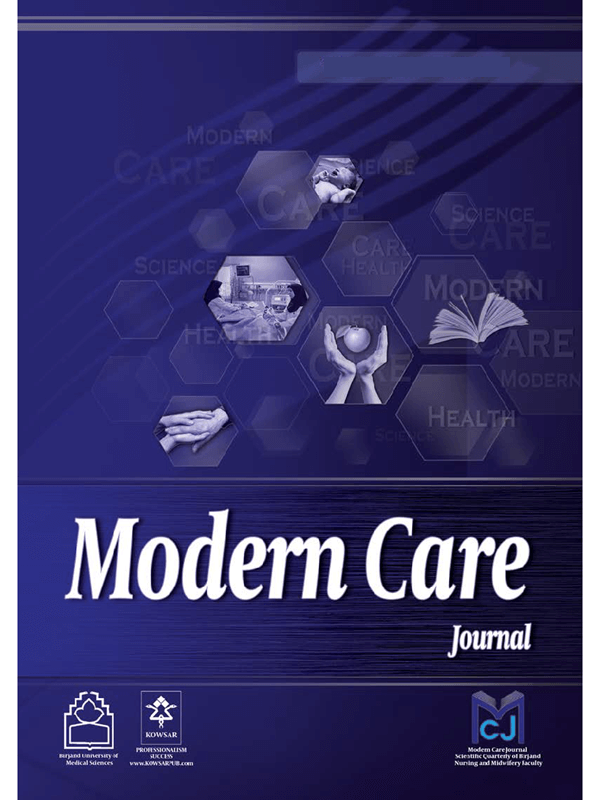
Efficacy of Saffron (Crocus sativus L.) in Premenstrual Syndrome, Labor, Childbirth, and Menopause: A Systematic Review of Clinical Trials
2023 May 09 Modern Care Journal Irani M, Rahmanian A, Soltani N
Systematic Review Saffron Premenstrual Syndrome Labour MenopauseSaffron shows promising improvements in dealing with women's health issues related to labor, childbirth, premenstrual syndrome and menopause.

Green Tea and Benign Gynecologic Disorders: A New Trick for An Old Beverage?
2023 Mar 16 Nutrients Hazimeh D, Massoud G, Parish M, Singh B, Segars J, Islam MS
Review Article Adenomyosis PCOS EGCG Endometriosis Green Tea Period PainGreen tea helps alleviate symptoms in multiple benign gynecological disorders, primarily due to a compound called Epigallocatechin-3-gallate.

The role of diet in managing menopausal symptoms: A narrative review
2023 Feb 15 Nutrition Bulletin Yelland S, Steenson S, Creedon A, Stanner S
The study concludes that adopting a healthier dietary pattern in accordance with dietary guidelines is likely to help support women's health before, during, and after the menopausal transition.
Review Article Menopause Dietary ManagementClinical Trials
Clinical trials are research studies that involve people and are conducted to evaluate the safety and efficacy of new treatments or interventions, such as drugs, medical devices, or behavioural therapies.

A dietary intervention for postmenopausal hot flashes: A potential role of gut microbiome. An exploratory analysis
2023 Dec Complementary Therapies in Medicine Kahleova H, Holtz DN, Strom N, La Reau A, Kolipaka S, Schmidt N, et al.
Randomised Controlled Trial Hot Flushes Plant-Based Diet Low Fat Diet Gut Microbiota SoybeanChanges in gut microbiome associated with a low-fat, vegan diet and cooked soybeans may reduce the frequency and severity of postmenopausal hot flashes.
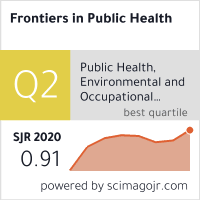
Acupuncture for comorbid depression and insomnia in perimenopause: A feasibility patient-assessor-blinded, randomized, and sham-controlled clinical trial
2023 Feb 06 Frontiers in Public Health Zhao FY, Zheng Z, Fu QQ, Conduit R, Xu H, Wang HR, et al.
Randomised Controlled Trial Perimenopausal DepressionAcupuncture can improve both perimenopausal depression and insomnia with short-medium term effects while being a safe treatment.
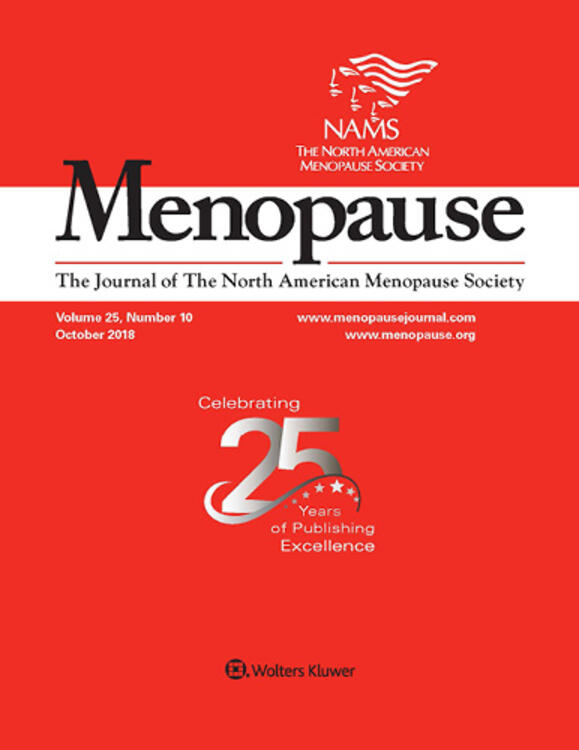
A dietary intervention for vasomotor symptoms of menopause: a randomized, controlled trial
2022 Oct 16 Menopause Barnard ND, Kahleova H, Holtz DN, Znayenko-Miller T, Sutton M, Holubkov R, et al.
Randomised Controlled Trial Plant-Based Diet Hot Flushes Menopause Low Fat Diet SoybeanA diet low in fat, vegan, and inclusive of daily cooked soybeans significantly reduces the frequency and severity of hot flashes in postmenopausal women.

Evaluation of the Effectiveness of Fermented Soybean-Lettuce Powder for Improving Menopausal Symptoms
2022 Jul 13 Nutrients Han AL, Lee HK, Chon HS, Pae HO, Kim MS, Shin YI, et al.
Randomised Controlled Trial Menopause Soybean LettuceSoybean lettuce extract effectively reduces symptoms of menopause syndrome without notable side effects.

Effects of pomegranate supplement on menopausal symptoms and quality of life in menopausal women: A double-blind randomized placebo-controlled trial
2022 Feb Complementary Therapies in Medicine Adel-Mehraban MS, Tansaz M, Mohammadi M, Yavari M
Randomised Controlled Trial Menopause PomegranateFour weeks' treatment with pomegranate supplement greatly helps in alleviating menopausal symptoms and enhancing the quality of life in menopausal women.
Study Protocols
Published study protocols are detailed plans that outline the objectives, methodology, statistical analyses, and organisation of a research study that have been made publicly available for others to review and use as a reference.

Efficacy and safety of Chinese herbal medicine Buzhong Yiqi decoction for postmenopausal women with osteoporosis: A protocol for systematic review and meta-analysis
2022 Nov 11 Medicine Xiang K, Yang J, Liu W, Chen L, Hou H, Zhou X, et al.
This study will evaluate the efficacy and safety of BZYQD in the treatment of PMOP, to provide high-quality, evidence-based clinical recommendations. It will also provide a trustable clinical foundation for BZYQD in the treatment of PMOP.
Study Protocol Postmenopausal Bu Zhong Yi Qi Tang Chinese Herbal Medicine
Acupuncture for perimenopausal insomnia
2019 Jun Medicine Guo T, Jia M, Jin Y, Xu N, Peng T.
Study Protocol Systematic Review Meta-Analysis Insomnia Menopause
Effect of acupuncture on insomnia in menopausal women: a study protocol for a randomized controlled trial
2019 May 30 BMC Complementary Medicine and Therapies Li S, Yin P, Yin X, Bogachko A, Liang T, Lao L, et al.
If the results confirm that acupuncture is effective and safe for the treatment on insomnia in menopausal women, this positive outcome could provide evidence for clinical application.
Study Protocol Menopause Insomnia AcupuncturePresentation Slides

Randomised Controlled Trial
Changes in gut microbiome associated with a low-fat, vegan diet and cooked soybeans may reduce the frequency and severity of postmenopausal hot flashes.
Kahleova H, Holtz DN, Strom N, La Reau A, Kolipaka S, Schmidt N, Hata E, Znayenko-Miller T, Holubkov R, Barnard ND

Systematic Review
Pomegranate can significantly enhance women's health during and after menopause by reducing hot flashes severity and other menopause symptoms.
Moeini R, Shirafkan H, Gorji N

Clinical Study
Consuming bicarbonate-calcium mineral water, low in sodium, can help manage calcium imbalance and support bone health in perimenopausal women.
Marino C, Pagano I, Castaldo G, Grimaldi M, D’Elia M, Santoro A, Conte A, Molettieri P, Parisella C, Buonocore M, D’Ursi AM, Rastrelli L

Animal Study
A combination of soybean germ extract and a probiotic significantly improved menopause-related conditions and mood in an ovariectomized rat model.
Lee SH, Lim TJ, Yun EJ, Kim KH, Lim S

Review Article
Soybean intake can potentially reduce risks of several cancers, type 2 diabetes, osteoporosis, and hot flashes, and it may negatively impact some drug treatments and cause allergies.
Kang JH, Dong Z, Shin SH
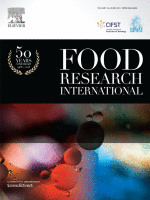
Animal Study
Fermented soy milk significantly improves lipid profiles and fertility in a model of premenopausal mice, due to increased bioavailability and action of beneficial compounds.
Ruiz de la Bastida A, Langa S, Peirotén , Fernández-Gonzalez R, Sánchez-Jiménez A, Maroto M, Antonio Curiel J, Guillamon E, Arqués JL, Gutiérrez-Adán A, Landete JM

Systematic Review
Saffron shows promising improvements in dealing with women's health issues related to labor, childbirth, premenstrual syndrome and menopause.
Irani M, Rahmanian A, Soltani N

Review Article
Green tea helps alleviate symptoms in multiple benign gynecological disorders, primarily due to a compound called Epigallocatechin-3-gallate.
Hazimeh D, Massoud G, Parish M, Singh B, Segars J, Islam MS
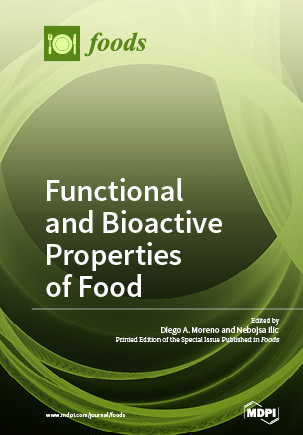
Animal Study
Long-term intake of traditionally made Doenjang, particularly high in certain species, may improve symptoms of estrogen deficiency more effectively than unfermented soybeans.
Zhang T, Yue Y, Jeong SJ, Ryu MS, Wu X, Yang HJ, Li C, Jeong DY, Park S

Randomised Controlled Trial
Acupuncture can improve both perimenopausal depression and insomnia with short-medium term effects while being a safe treatment.
Zhao FY, Zheng Z, Fu QQ, Conduit R, Xu H, Wang HR, Huang YL, Jiang T, Zhang WJ, Kennedy GA

Randomised Controlled Trial
A diet low in fat, vegan, and inclusive of daily cooked soybeans significantly reduces the frequency and severity of hot flashes in postmenopausal women.
Barnard ND, Kahleova H, Holtz DN, Znayenko-Miller T, Sutton M, Holubkov R, Zhao X, Galandi S, Setchell KDR
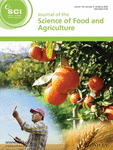
Review Article
Moderate consumption of beer, due to its melatonin content, can beneficially contribute to healthy diets and improve quality of life in certain physiological conditions.
Maldonado MD, Romero‐Aibar J, Calvo JR

Review Article
Pumpkin seed oil, with its phytochemical content, shows beneficial properties against cardiovascular problems in menopausal women and hormone imbalances.
Šamec D, Loizzo MR, Gortzi O, Çankaya T, Tundis R, Suntar , Shirooie S, Zengin G, Devkota HP, Reboredo‐Rodríguez P, Hassan STS, Manayi A, Kashani HRK, Nabavi SM

Randomised Controlled Trial
Soybean lettuce extract effectively reduces symptoms of menopause syndrome without notable side effects.
Han AL, Lee HK, Chon HS, Pae HO, Kim MS, Shin YI, Kim S

Randomised Controlled Trial
Four weeks' treatment with pomegranate supplement greatly helps in alleviating menopausal symptoms and enhancing the quality of life in menopausal women.
Adel-Mehraban MS, Tansaz M, Mohammadi M, Yavari M

Systematic Review
High prevalence of insomnia, anxiety, and depression among perimenopausal women, emphasizing the importance of exploring acupuncture as a potential green therapy for effectively addressing these interconnected issues.
Ping Y, Liang C, Fan X, Zhang L, Ying D, Wang Z
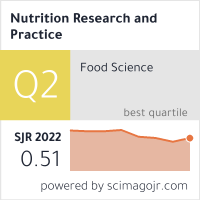
Meta-Analysis
Isoflavone supplementation noticeably impacts menopausal symptoms and hormonal changes in postmenopausal women.
Kang I, Rim CH, Yang HS, Choe JS, Kim JY, Lee M

Systematic Review
Acupuncture's potential in reducing menopausal hot flush frequency compared to sham acupuncture, and its similarity in impacting hormone levels to hormone therapy.
Liu C, Wang Z, Guo T, Zhuang L, Gao X
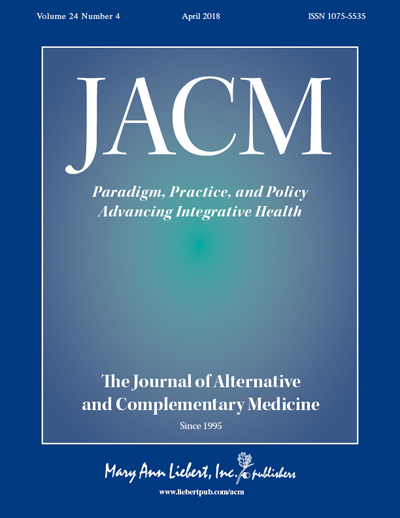
Randomised Controlled Trial
A combined treatment of soy and hop extract is a safe and effective alternative to traditional hormone replacement therapy for improving postmenopausal symptoms.
Kim HI, Kim MK, Lee I, Yun J, Kim EH, Seo SK

Clinical Study
Consuming soymilk-honey fermented with a specific type of probiotic significantly reduces osteocalcin levels, which may impact bone health in postmenopausal women.
Desfita S, Sari W, Yusmarini Y, Pato U, Zakłos-Szyda M, Budryn G
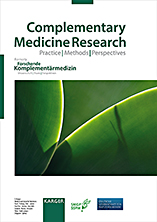
Systematic Review
Soy food intake, particularly fermented soy products, appear to have a protective effect on fracture risk among Asian women, especially in early menopause.
Akhavan Zanjani M, Rahmani S, Mehranfar S, Zarrin M, Bazyar H, Moradi Poodeh B, Zare Javid A, Hosseini SA, Sadeghian M

Experimental Study
The Licorice and Jujube formula is seen as commonly used and potentially effective for treating menopausal symptoms as per classical Chinese medicine.
Coyle ME, Liu J, Yang H, Wang K, Zhang AL, Guo X, Lu C, Xue CC

Randomised Controlled Trial
Moderate daily consumption of beer, both with and without alcohol, can significantly alleviate menopause-related symptoms and improve cardiovascular health in postmenopausal women.
Trius-Soler M, Marhuenda-Muñoz M, Laveriano-Santos EP, Martínez-Huélamo M, Sasot G, Storniolo CE, Estruch R, Lamuela-Raventós RM, Tresserra-Rimbau A

Review Article
In reproductive health, honey can improve infertility, protect the postmenopausal reproductive tract, prevent toxic effects, maintain sperm quality by restoring testosterone levels and treat vulvovaginal candidiasis infections.
Zaid SSM, Ruslee SS, Mokhtar MH
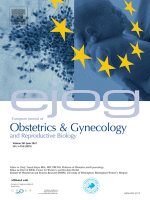
Systematic Review
Phytoestrogens, used in various forms, have shown improvement in urogenital menopause symptoms and improved women's sexual function, promoting overall quality of life.
Abdi F, Rahnemaei FA, Roozbeh N, Pakzad R

Systematic Review
Acupuncture improves perimenopausal sleep quality and symptoms, potentially a safe alternative or adjunct to hypnotic drugs, requiring further research validation.
Zhao, F.-Y., Fu, Q.-Q., Kennedy, G. A., Conduit, R., Wu, W.-Z., Zhang, W.-J., & Zheng, Z.
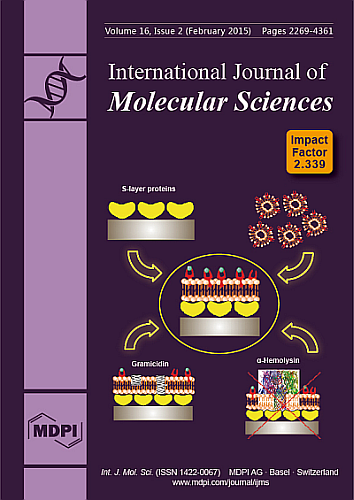
Systematic Review
Isoflavones found in soybeans can reduce risks of certain cancers and alleviate menopause-related symptoms among women, such as vasomotor syndromes, spinal bone loss, and hypertension.
Chen LR, Chen KH

Systematic Review
Current evidence shows that short-term honey supplementation following surgical or physiological menopause exerts an oestrogenic, antioxidant and anti-inflammatory effect on the female reproductive system.
Ismail NH, Ibrahim SF, Jaffar FHF, Mokhtar MH, Chin KY, Osman K

Review Article
Isoflavones, mainly found in soy-derived products, show beneficial effects on bone health, potential cancer risk reduction, and alleviation of menopausal symptoms, but not on cardiovascular risk.
Gómez-Zorita S, González-Arceo M, Fernández-Quintela A, Eseberri I, Trepiana J, Portillo MP
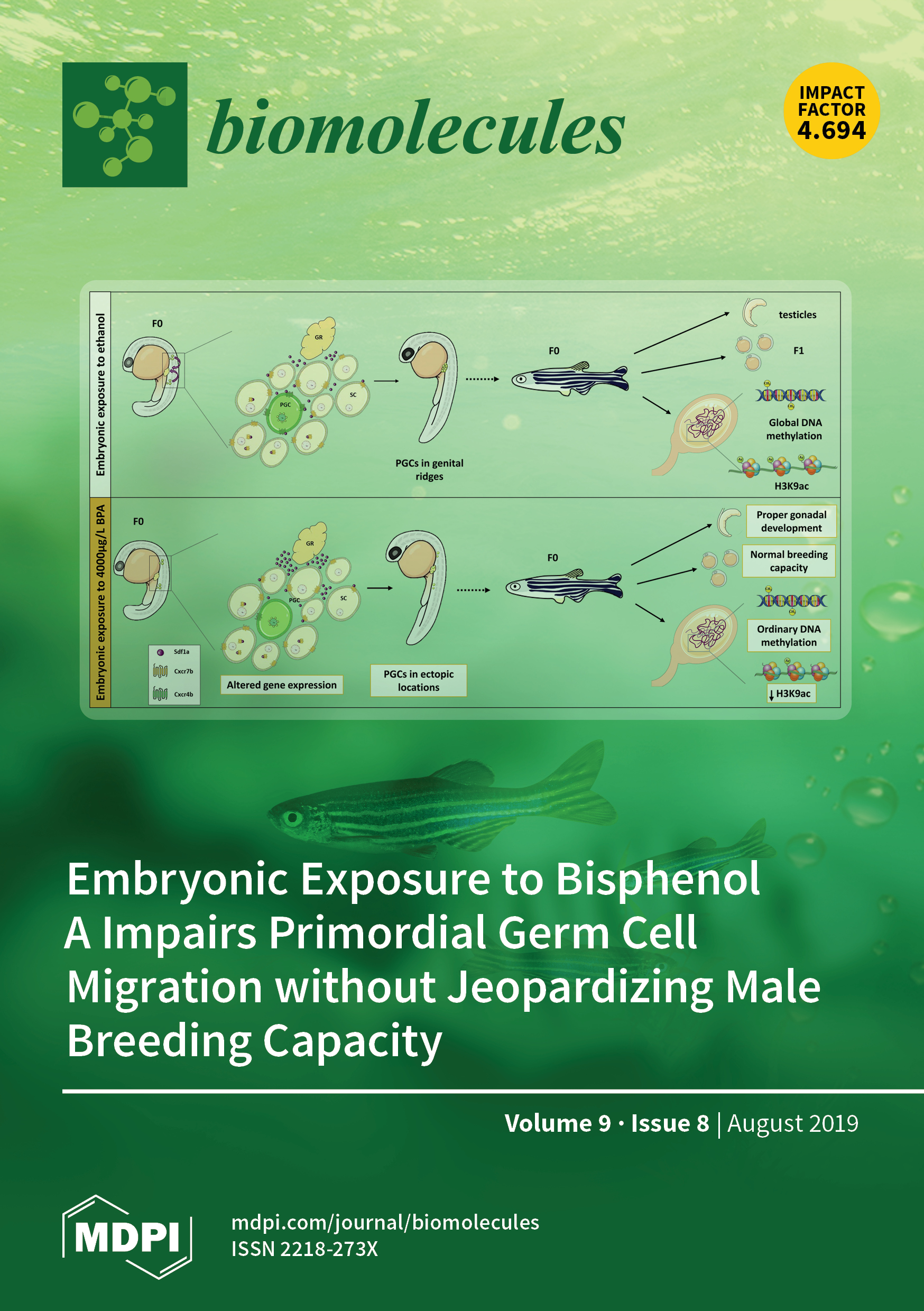
Review Article
Avocado and soybean unsaponifiables may effectively reduce inflammation and symptoms related to osteoarthritis, autoimmune diseases, and menopause.
Salehi B, Rescigno A, Dettori T, Calina D, Docea AO, Singh L, Cebeci F, Özçelik B, Bhia M, Dowlati Beirami A, Sharifi-Rad J, Sharopov F, C. Cho W, Martins N
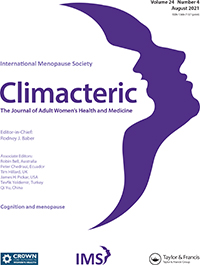
Systematic Review
Acupuncture significantly alleviated breast cancer treatment-related menopause symptoms for at least 3 months, but not hot flushes.
Chien TJ, Liu CY, Fang CJ, Kuo CY

Network Pharmacology
Guizhi Fuling Wan, a traditional herbal formula, can improve peripheral blood flow in menopausal hot flush sufferers, despite not changing the frequency or severity of the flushes.
Li , Hung , Li , Yang

Experimental Study
Extract of pumpkin seeds displays estrogenic properties, potentially offering a solution to alleviate symptoms of menopausal syndromes resulting from estrogen deficiency.
Lestari B, Walidah Z, Utomo RY, Murwanti R, Meiyanto E
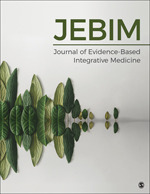
Systematic Review
CAM interventions, including mind-body practices and hypnosis, offer promise for alleviating menopausal symptoms, while herbal products lack consistent support.
Johnson A, Roberts L, Elkins G

Systematic Review
Evidence supports the use of acupuncture for menopause symptoms as an adjunctive or stand-alone treatment for reducing vasomotor symptoms and improving health-related quality of life outcomes.
Befus D, Coeytaux RR, Goldstein KM, McDuffie JR, Shepherd-Banigan M, Goode AP, Kosinski A, Van Noord MG, Adam SS, Masilamani V, Nagi A, Williams JW Jr.

Systematic Review
Both the total score and the subgroup analysis strongly indicated that acupuncture can alleviate menopause-related symptoms.
Li W, Luo Y, Fu W, Lei R.

Practice Guideline
Long-chain omega-3 polyunsaturated fatty acids have various health benefits for postmenopausal women including reducing triglycerides and improving depression and psychotic symptoms.
Sánchez-Borrego R, von Schacky C, Osorio MJA, Llaneza P, Pinto X, Losa F, Navarro MC, Lubián D, Mendoza N

Systematic Review
Acupuncture is non-inferior to hormone therapy or other applied relaxation therapies in alleviating the symptoms of menopause for its safety, non-invasive and especially considering the side effect of hormone therapy.
Chien TJ, Hsu CH, Liu CY, Fang CJ.
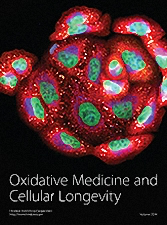
Review Article
Moderate beer consumption could potentially alleviate menopausal symptoms by influencing the internal estrogen receptors through the phenolic compounds present in beer.
Sandoval-Ramírez BA, Lamuela-Raventós RM, Estruch R, Sasot G, Doménech M, Tresserra-Rimbau A

Systematic Review
The study's analysis of 272 articles comparing Traditional Chinese Acupuncture (TCA) and Sham Acupuncture (SA) for managing hot flashes in menopausal breast cancer patients indicates that while 3 studies leaned towards TCA's effectiveness, 2 showed both interventions to be beneficial.
Carlos, Luís et al.
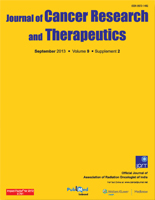
Systematic Review
Acupuncture appears to be a potentially effective treatment for reducing hot flashes in women diagnosed with breast cancer.
Chen YP, Liu T, Peng YY, Wang YP, Chen H, Fan YF, Zhang L
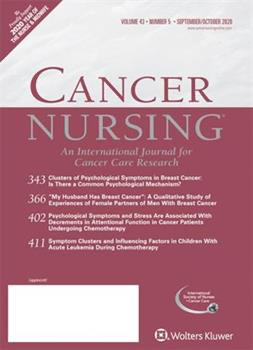
Systematic Review
Acupuncture may be used as a complementary therapy for breast cancer survivors experiencing hot flashes and other menopause-related symptoms.
Chiu, Hsiao-Yean; Shyu, Yuh-Kae; Chang, Pi-Chen, Tsai, Pei-Shan
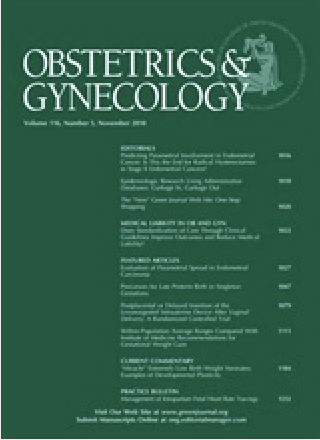
Systematic Review
Acupuncture is associated with a significant reduction in sleep disturbances in women experiencing menopause-related sleep disturbances.
Chiu, Hsiao-Yean RN, PhD; Hsieh, Yu-Jung RN, MSN; Tsai, Pei-Shan RN

Systematic Review
Acupuncture is associated with a significant reduction in sleep disturbances in women experiencing menopause-related sleep disturbances.
Chiu HY, Hsieh YJ, Tsai PS.

Systematic Review
Acupuncture improves hot flash frequency and severity, menopause-related symptoms, and quality of life (in the vasomotor domain) in women experiencing natural menopause.
Chiu HY, Pan CH, Shyu YK, Han BC, Tsai PS.
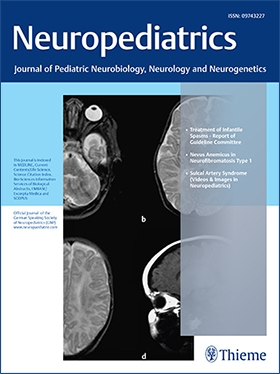
Clinical Study
Hop extract, particularly its component 8-Prenylnaringenin (8-PN), demonstrates potential in alleviating symptoms common in menopause such as osteoporosis, vasomotoric disturbances, and sexual motivation.
Keiler A, Zierau O, Kretzschmar G

Systematic Review
Soybean isoflavones, whether extracted or synthesized, prove significantly effective in reducing the frequency and severity of hot flashes in perimenopausal and postmenopausal women.
Taku K, Melby MK, Kronenberg F, Kurzer MS, Messina M
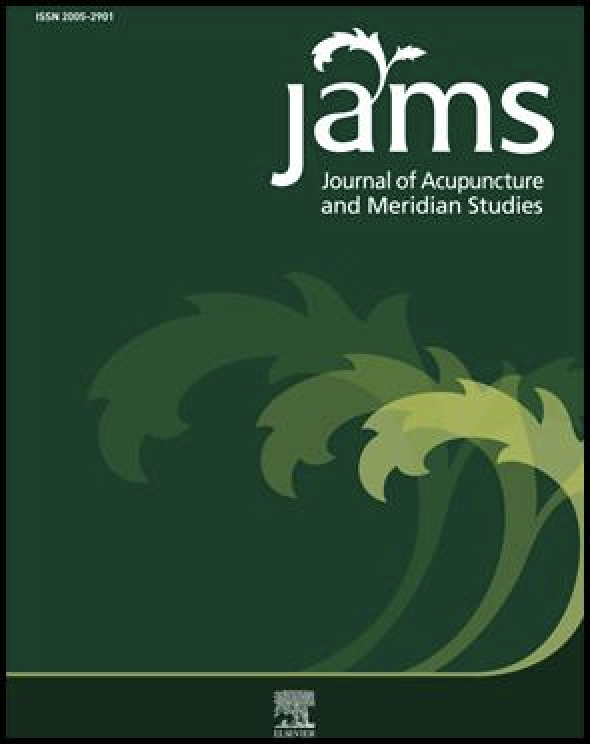
Cohort Study
Gui-zhi-fu-ling-wan, a traditional Chinese medicine, can effectively alleviate hot flashes in young patients in a safe manner.
Cho KH, Kim YS, Jung WS, Kim TH

Randomised Controlled Trial
Pumpkin seed oil supplementation may increase good cholesterol levels, lower diastolic blood pressure, and alleviate menopausal symptoms in postmenopausal women.
Gossell-Williams M, Hyde C, Hunter T, Simms-Stewart D, Fletcher H, McGrowder D, Walters CA
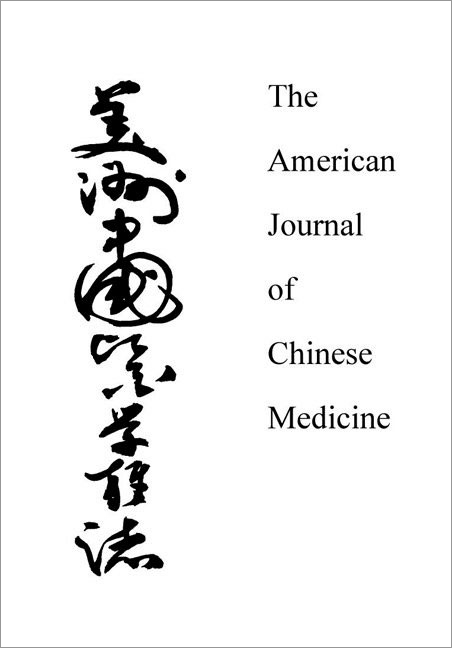
Randomised Controlled Trial
Gui-zhi-fu-ling-wan, a herbal therapy, depicts to be a viable alternative to hormone replacement therapy for treating hot flashes in post-menopausal women experiencing coldness in lower extremities.
Ushiroyama T, Ikeda A, Sakuma K, Ueki M
Executive Summary
Write an executive summary in the form of a blog article on the topic of "Research into Chinese medicine treatment for Menopause" summarising the research below and using language that can be easily understood by patients and avoiding medical jargon using a professional and caring tone of voice.
Write an executive summary in the form of a blog article on the topic of "Researched Chinese medicine treatments for Menopause" summarising the research below in an objective and easy to understand way, and using language that can be easily understood by patients. Group the article into Chinese medicine treatments first, followed by nutrition and other treatments. Avoid using medical jargon and use a professional and caring tone of voice.
Write me a concise but easy to understand executive summary on the topic of "Chinese medicine treatments for Menopause" based on the following research that I will give you. Your summary should be 2 paragraphs long in Australian English spelling and include references to the studies.
A Randomised Controlled Trial published in 2023 in the journal Complementary Therapies in Medicine found that Changes in gut microbiome associated with a low-fat, vegan diet and cooked soybeans may reduce the frequency and severity of postmenopausal hot flashes. In this study, 84 postmenopausal women experiencing two or more moderate-to-severe hot flashes daily were randomly assigned to a low-fat, vegan diet with daily cooked soybeans or allowed to maintain their usual diet. Over a 12-week period, the frequency and severity of hot flashes were tracked using a mobile application. In 11 women from the group, gut microbiome was analyzed at the start and after 12 weeks of the dietary intervention, using deep shotgun metagenomic sequencing. The women who underwent gut microbiome testing experienced a substantial decrease in total hot flashes during the dietary intervention, and severe hot flashes disappeared entirely in this group. Alpha and beta diversity within the microbiome showed no significant difference in the intervention group between baseline and the end of the 12 weeks. Interestingly, adjustments in the relative abundance of certain bacterial strains, notably Porphyromonas and Prevotella corporis, were linked with the reduction in severe day hot flashes, while changes in the relative abundance of Clostridium asparagiforme were associated with a reduction in total severe hot flashes and severe night hot flashes.
A Systematic Review published in 2023 in the journal Phytotherapy Research found that Pomegranate can significantly enhance women's health during and after menopause by reducing hot flashes severity and other menopause symptoms. The study aimed at understanding the impacts of pomegranate on women's health through and following menopause. To gather data, a rigorous search was conducted on various academic platforms, including PubMed, Web of Science, Cochrane, Scopus, and Google Scholar, up to the end of 2022. All forms of clinical research studies, from randomized clinical trials to case series, were considered for review. The material was evaluated using the Cochrane RoB 2.0 tool specifically for quality assessment of randomized clinical trials. To quantify the effects of the pomegranate intervention, standardized mean differences were calculated using a random effect model. It was found that pomegranate significantly reduces the severity of hot flashes in menopausal women, improves their high-density lipoprotein levels, and reduces the Follicle-Stimulating Hormone (FSH). However, no significant improvement was noticed in the low-density lipoprotein, body mass index, and body weight. Despite these findings, the study recognized that the results' conclusiveness was hampered due to small sample sizes and the lack of study design elements such as blinding and randomization.
A Clinical Study published in 2023 in the journal Metabolites found that Consuming bicarbonate-calcium mineral water, low in sodium, can help manage calcium imbalance and support bone health in perimenopausal women. The study involved 120 perimenopausal women who consumed 2 liters of a specific bicarbonate-calcium mineral water (Lete) daily for six months. This water was chosen because it is rich in calcium and bicarbonate but low in sodium. The study aimed to determine the impact of this water on bone health and overall metabolism. The participants’ urine and blood serum were analyzed using NMR-based metabolomic procedures. These analyses were conducted to assess the effects of the water not only on calcium metabolism but also on the broader systemic metabolism. The findings indicated that the Lete water effectively compensated for calcium dysmetabolism and supported bone health and integrity in perimenopausal women. While the study primarily focused on bone metabolism, it also provided insights into the potential system-wide metabolic effects of this specific type of mineral water. This suggests that such water could be a valuable dietary supplement for addressing calcium-related metabolic issues, particularly in perimenopausal women.
A Animal Study published in 2023 in the journal Nutrients found that A combination of soybean germ extract and a probiotic significantly improved menopause-related conditions and mood in an ovariectomized rat model. The study employed an ovariectomized rat model to understand the effects of a combination of soybean germ extract containing 30% isoflavone and a probiotic. The methodology included assessing the effects of this combination on several health markers including body weight, estrogen markers, uterine and bone health, vascular markers, and neurotransmitter levels in these rats. Once implemented, the combination of soybean germ extract and the probiotic showcased significant improvement in body weight and uterine and bone health of the rats. There were also noticeable effects on the lipid profile, liver function, and vascular markers. Most interestingly, the combination had a positive impact on the levels of serotonin and norepinephrine, indicating potential mood-enhancing effects, which are crucial in managing symptoms post-menopause. This essentially shows the potential of a dietary approach towards menopausal management, especially given the observed benefits without the side effects typically associated with hormone replacement therapy.
A Review Article published in 2023 in the journal Journal of Microbiology and Biotechnology found that Soybean intake can potentially reduce risks of several cancers, type 2 diabetes, osteoporosis, and hot flashes, and it may negatively impact some drug treatments and cause allergies. This research primarily involves review and analysis of current clinical studies focusing on the benefits and risks of soybean ingredients. The method appears to be a systematic review of various epidemiological studies which were investigating the correlation between soybean consumption and the risk of developing multiple types of cancers including breast, prostate, colorectal, ovarian, and lung cancers. Besides cancer, other common diseases such as type 2 diabetes, osteoporosis, and menopausal symptoms like hot flashes were also investigated. Moreover, any potential adverse effects of soybean, including its possible detrimental impact on certain drug treatments and its allergenicity, were also factors of study in these clinical evidences. In the discussion of results, the researchers found a significant inverse association between soybean intake and cancer risks, wherein an increase in the consumption of soybean foods was associated with a reduced likelihood of cancer. Besides showing potential anticancer properties, soybean consumption was found inversely correlated with risks of type 2 diabetes. Soy isoflavones, compounds present in soybeans, also showed potential benefits in the management of osteoporosis and hot flashes. On the other hand, the adverse effects of soybean, including interference with certain drug therapies and causing allergies, were also duly noted. Therefore, the research concludes that while soybean promises several significant health benefits, caution should be exercised for individuals under specific drug treatments or with allergies to soy.
A Animal Study published in 2023 in the journal Food Research International found that Fermented soy milk significantly improves lipid profiles and fertility in a model of premenopausal mice, due to increased bioavailability and action of beneficial compounds. In this study, non-fermented soy beverage (SB) and soy beverage fermented with Bifidobacterium pseudocatenulatum INIA P815 (FSB) were tested on both cyclic and acyclic C57BL/6J aged female mice which mimic premenopause and menopause conditions respectively. Over a period of 36 days, the beverages were given to the mice and the variables measured included body weight, lipid and inflammatory profile and fertility. In addition, hepatic gene expressions were examined and the faecal microbiota composition was assessed to further understand the effects of the two beverages. In the results, FSB displayed a higher concentration of the aglycones daidzein and genistein as well as increased antioxidant activity due to the fermentation process. The cyclic mice that were given FSB experienced a significant rise in the number of oocytes and zygotes retrieved. It was also noticed that the triglycerides were lower in the groups that were given FSB compared to the SB groups. However, it was found that neither of the treatments significantly influenced the inflammatory profile or caused a major shift in intestinal microbiota or hepatic gene expressions in either of the groups. Still, it was observed that FSB had more health benefits than SB with regards to the lipid profile and fertility in the cyclic mice, likely due to the increased bioavailability and bioactivity of compounds due to fermentation.
A Systematic Review published in 2023 in the journal Modern Care Journal found that Saffron shows promising improvements in dealing with women's health issues related to labor, childbirth, premenstrual syndrome and menopause. For the methodology, the investigators implemented a systematic review by utilizing the PICO process to explore various databases like PubMed, Scopus, Cochrane, among others, until February 2023. A strategically designed search was conducted using a set of keywords related to saffron and women's health conditions. From a pool of 164 articles, 20 randomized controlled trials that met the minimum score based on the Jadad scale were included in the study. In terms of results, the investigation revealed that saffron holds positive impacts on labor and childbirth, such as enhancing Bishop's score, fostering labor progression, and reducing labor pain intensity and fatigue. Moreover, it helps with episiotomy healing and ameliorates mood swings and psychological symptoms associated with menopause and premenstrual syndrome. The study also acknowledges some influence of saffron on postpartum depression.
A Review Article published in 2023 in the journal Nutrients found that Green tea helps alleviate symptoms in multiple benign gynecological disorders, primarily due to a compound called Epigallocatechin-3-gallate. The paper reviews the role of the compound Epigallocatechin-3-gallate found in green tea, and its effects on various benign gynecological conditions. The compound is noted for its antioxidant and prooxidant qualities, allowing it to interact with multiple cellular pathways that are crucial for disease pathogenesis. The studied conditions include uterine fibroids, endometriosis, dysmenorrhea, adenomyosis, menopause, and polycystic ovary syndrome. The research accounts for the specific mechanisms through which the compound might affect each condition, such as anti-fibrotic, anti-angiogenic, and pro-apoptotic mechanisms. The results suggest that green tea consumption can lead to improved symptom management in these disorders. It was found to lessen the intensity of symptoms associated with uterine fibroids and endometriosis, by invoking anti-fibrotic, anti-angiogenic, and pro-apoptotic mechanisms. It also helped manage pain linked with dysmenorrhea and adenomyosis through reducing uterine contractility and widely felt pain. Additionally, it showed efficacy in weight and osteoporosis control during menopause, and showed potential benefits in managing polycystic ovary syndrome. However, claims regarding its influence on fertility were deemed controversial.
A Animal Study published in 2023 in the journal Foods found that Long-term intake of traditionally made Doenjang, particularly high in certain species, may improve symptoms of estrogen deficiency more effectively than unfermented soybeans. The study involved using four different types of traditionally made Doenjang (TMD), distinguished based on the quantities of certain species and biogenic amines they contained. These were used to observe possible alterations in energy, glucose, and lipid metabolism in estrogen-deficient female rats via potential modification of the gut microbiota. This involved comparing a control group of rats that underwent ovary removal with five other groups that were supplemented with different types of TMD and cooked soybeans. The outcomes revealed that weight gain and visceral fat mass were lower and lean body mass was higher in the TMD and cooked soybean intake groups compared to the control group, however, these figures were not as good as those in the normal control group. Additionally, the hepatic triglyceride content was lower with TMD intake. It was further observed that the intestinal health significantly improved in the TMD groups, and some groups revealed more improvements than others. Concerning gut microbiota, certain groups showed an increase in certain types of organisms, suggesting a benefit from high amounts of the specific species in TMD. The study inferred that TMD rich in certain species correlates positively with the regulation of estrogen-related markers.
A Randomised Controlled Trial published in 2023 in the journal Frontiers in Public Health found that Acupuncture can improve both perimenopausal depression and insomnia with short-medium term effects while being a safe treatment. The experiment involved seventy eligible participants who were randomly assigned to either a real-acupuncture (RA) or a sham-acupuncture (SA) group. They were given 17 sessions of either RA or SA treatments over an 8-week timeframe. The primary outcomes for mood and sleep were evaluated using the 17-item Hamilton Depression Rating Scale and the Pittsburgh Sleep Quality Index scores. Secondary outcomes included an evaluation of anxiety symptoms, perimenopausal symptoms, and quality of life. Also, participants' experiences and overall satisfaction with treatment were assessed. Blood samples were collected as well to measure reproductive hormone levels. Reports indicate that 65 participants completed all treatment sessions while 54 and 41 participants completed the 8-week and 16-week follow-ups respectively. The results showed the RA group to have a bigger reduction of Pittsburgh Sleep Quality Index scores at post-treatment and 8-week follow-up compared to the sham-acupuncture group. Although, the change in the Hamilton Depression Rating Scale scores for the RA group wasn’t significantly different from the sham group. There were no significant mean differences for the Hamilton Depression Rating Scale or the Pittsburgh Sleep Quality Index between the two groups from the beginning to the 16th-week follow-up, nor were any differences noted in serum reproductive hormone levels among the groups. No major adverse events were reported.
A Randomised Controlled Trial published in 2022 in the journal Menopause found that A diet low in fat, vegan, and inclusive of daily cooked soybeans significantly reduces the frequency and severity of hot flashes in postmenopausal women. The methodology used involved the selection of 84 postmenopausal women who reported at least two moderate-to-severe hot flashes. These women were randomly divided into two cohorts, one prescribed the dietary intervention of a low-fat, vegan diet coupled with daily servings of cooked soybeans and a control group which did not alter their diet. Over a 12-week period, a mobile application was used to track hot flashes in terms of frequency and severity. Further, the participants’ vasomotor, psychosocial, physical, and sexual symptoms were assessed using the Menopause-Specific Quality of Life questionnaire. In some participants, the presence of urinary equol, a compound formed in the gut after consuming soy, was measured following the intake of the specified amount of soybeans for 3 days. In discussing the results, a remarkable decrease was noted in the frequency and severity of hot flashes experienced by the group assigned the dietary intervention versus those in the control group. In addition, after 12 weeks, half of the participants adhering to the vegan diet and daily soy intake reported complete cessation of moderate-to-severe hot flashes. Furthermore, notable decreases were reported in the intervention group in menopause-specific quality of life domains including vasomotor, physical, and sexual. Neither the season nor the participant's ability to produce equol played a notable role in these improvements.
A Review Article published in 2022 in the journal Journal of the Science of Food and Agriculture found that Moderate consumption of beer, due to its melatonin content, can beneficially contribute to healthy diets and improve quality of life in certain physiological conditions. The methodology of the study primarily involved a comprehensive review of data, partially acquired from a MEDLINE/PubMed search spanning nearly five decades, from 1975 to April 2022. Supplementary data was also sourced from personal experiences and previously published studies about melatonin, the immune system, and beer. The aim was to examine the generation mechanisms of melatonin in beer, its concentrations, and potential impacts on health. In discussing the results, the study highlighted the rich melatonin content of beer and its echoes in potent antioxidant, oncostatic, immunomodulatory, and cytoprotective properties. Diving further into the beneficial aspects of beer consumption, the study found that the melatonin content of beer, when consumed moderately, could serve as a protective factor. This was particularly applicable in certain scenarios such as a on healthy diet, during pregnancy, menopause and in old age. The paper strongly suggests that moderate beer consumption can enhance the quality of life.
A Review Article published in 2022 in the journal Comprehensive Reviews in Food Science and Food Safety found that Pumpkin seed oil, with its phytochemical content, shows beneficial properties against cardiovascular problems in menopausal women and hormone imbalances. The study focused on gathering scientific information that highlights the potential of pumpkin seed oil as a health-benefiting food ingredient. Its focus is on the oil’s chemical composition, phytochemical content, biological activity, safety measures alongside the various production processes. The researchers examined major phytochemicals found in the oil, including polyphenols, phytoestrogens, and fatty acids, while also noting the potential health benefits of carotenoids, squalene, tocopherols, and minerals present in it. In terms of methodology, most studies within this review were conducted in vitro to validate the oil's antioxidant and antimicrobial activities. Furthermore, there were clinical studies undertaken specifically to observe the effect of the oil in addressing cardiovascular challenges in menopausal women and conditions related to sex hormone imbalances. The comprehensive overview covers a wide array of data on the composition and potential uses of pumpkin seed oil.
A Randomised Controlled Trial published in 2022 in the journal Nutrients found that Soybean lettuce extract effectively reduces symptoms of menopause syndrome without notable side effects. The study targeted adult women suffering from menopausal syndrome with a Kupperman index of 15 or more. Participants were split into two groups – the experimental group and the placebo group. The research spanned over a four-week period and embraced a total of 39 participants (with one dropping out). Measurements of body mass index, waist circumference, and several cholesterol levels were taken before and after the study, but these didn't show any significant changes. In the results discussion, the most notable finding was a significant reduction in the Kupperman index in the experimental group. They were given the natural nitric oxide-containing soybean lettuce extract. This decrease denotes the alleviation of menopausal symptoms, offering an effective, natural alternative to hormone therapy. Conversely, the placebo group didn't show any substantial change, reinforcing the efficacy of the soybean lettuce extract.
A Randomised Controlled Trial published in 2022 in the journal Complementary Therapies in Medicine found that Four weeks' treatment with pomegranate supplement greatly helps in alleviating menopausal symptoms and enhancing the quality of life in menopausal women. In this double-blind, placebo-controlled trial, a total of 78 healthy women were selected to study the effects of pomegranate on menopausal symptoms. The participants were interviewed at three different stages: before receiving either the pomegranate supplement or placebo, after the completion of the treatment, and again after a period of three weeks wherein no intervention was given. The women were asked to fill out a series of questionnaires to provide their demographic information, and to assess their menopausal symptoms and their menopause-specific quality of life. The results demonstrated a significant improvement in the quality of life and menopausal symptoms of the women from the pomegranate group, as opposed to the placebo group. These improvements were consistent as shown by the significant changes in their responses to the questionnaires before and after the treatment. In addition, it was observed that the positive effects of the pomegranate treatment were still evident even after four weeks of no medical intervention. This suggests the beneficial and prolonged effects of pomegranate in managing menopausal symptoms and enhancing the quality of life in menopausal women.
A Systematic Review published in 2022 in the journal Medicine found that High prevalence of insomnia, anxiety, and depression among perimenopausal women, emphasizing the importance of exploring acupuncture as a potential green therapy for effectively addressing these interconnected issues. This passage discusses the prevalence of insomnia among perimenopausal women, its association with anxiety and depression, and the potential of acupuncture as a green therapy for treating these issues. The passage outlines the objectives and methods of a systematic review aiming to evaluate the efficacy of acupuncture in improving sleep quality and alleviating anxiety and depression in perimenopausal women, highlighting the need for safer alternatives to conventional medications and the significance of such a study.
A Meta-Analysis published in 2022 in the journal Nutrition Research and Practice found that Isoflavone supplementation noticeably impacts menopausal symptoms and hormonal changes in postmenopausal women. In order to examine isoflavones effects on menopausal symptoms and the associated hormonal alterations, a systematic review and meta-analysis were conducted. To do this, the PubMed and EMBASE databases were used, but the selected studies were restricted to random controlled trials (RCTs) assessing isoflavone supplementation's impact on menopausal symptoms. Overall, 11 studies were chosen for the final quantitative evaluation, and the isoflavone intervention amount varied among these studies. The Meta-analysis displayed that supplementing isoflavones meaningfully increased estradiol levels and the Kupperman index (a composite scoring of multiple menopausal symptoms intensity). Yet, there were no significant impacts observed on hot flashes, or the release of two specific hormones: follicle-stimulating hormone and luteinizing hormone. It should be noted that there was a significant inconsistency in estradiol levels and Kupperman index findings among different studies.
A Systematic Review published in 2021 in the journal Acupuncture in Medicine found that Acupuncture's potential in reducing menopausal hot flush frequency compared to sham acupuncture, and its similarity in impacting hormone levels to hormone therapy. This study aimed to assess acupuncture's effectiveness and safety in treating menopausal hot flushes and its impact on hormone levels. Through meta-analyses of thirteen randomized controlled trials involving 1784 patients, it found that acupuncture reduced hot flush frequency compared to sham acupuncture, but didn't affect end scores of frequency or severity. Acupuncture demonstrated hormone level effects similar to hormone therapy. However, due to limited trial quality and quantity, further high-quality trials are necessary for definitive conclusions.
A Randomised Controlled Trial published in 2021 in the journal The Journal of Alternative and Complementary Medicine found that A combined treatment of soy and hop extract is a safe and effective alternative to traditional hormone replacement therapy for improving postmenopausal symptoms. In this double-blinded, randomized controlled trial, researchers administered a combination of soy and hop extract to 78 postmenopausal women with moderate to severe symptoms. Conducted in the gynecological outpatient clinic of a tertiary hospital, all subjects had modified Kupperman Menopausal Index (KMI) scores over 20. Participants either received the treatment or a placebo, as the researchers sought to evaluate their menopausal symptoms over the course of 12 weeks. The changes to their menopausal symptoms were tracked through self-reported KMI scores at multiple intervals. They also gauged measures such as the serum levels of bone metabolism markers, ultrasonographic parameters, hormone profiles, and safety assurances, amongst others. In terms of test results, after undergoing the 12-week treatment, the group receiving the combined soy and hop extract saw more considerable improvements in their symptoms compared to the placebo group. They particularly noted notable enhancements in conditions like fatigue, paresthesia, arthralgia, and myalgia, palpitations, and vaginal dryness. Lowered increases in urine N-telopeptide, a biomarker for bone metabolism, were observed in treatment group participants aged 50 and older. Meanwhile, endometrial thickness and hormonal profiles did not display any significant shifts in either group. Importantly, throughout the trial, no harmful side effects or events arose, speaking to the safety of the treatment.
A Clinical Study published in 2021 in the journal Nutrients found that Consuming soymilk-honey fermented with a specific type of probiotic significantly reduces osteocalcin levels, which may impact bone health in postmenopausal women. The researchers conducted a 90-day pre-post quasi-experimental study with control design on 54 postmenopausal women who were divided into three groups. The first group consumed regular soymilk, the second group consumed soymilk-honey fermented with a specific sub species of probiotics, and the third group consumed soymilk-honey fermented with a different type of probiotics. Each participant consumed 100 mL of their respective drink per day for 90 days. Measurements of blood serum osteocalcin were taken at the start and end of the study, alongside assessments of each participant's overall health status, including total cholesterol, blood glucose, and uric acid levels. In terms of results, it was observed that the group consuming the soymilk-honey fermented with the particular probiotic showed a significant decrease in their osteocalcin levels after the 90-day period. This indicates that this specific fermented soymilk-honey beverage might have a positive impact on bone health in postmenopausal women.
A Systematic Review published in 2021 in the journal Complementary Medicine Research found that Soy food intake, particularly fermented soy products, appear to have a protective effect on fracture risk among Asian women, especially in early menopause. The research team carried out a systematic review of prospective cohort studies investigating the link between soy food intake and fracture risk. The databases searched were PubMed, Scopus, and Embase up to June 2021, and the team narrowed down 695 records to include 5 high-quality cohort studies. These selected studies were mostly conducted in China, Singapore and Japan and varied in their focus on different types of fractures. The dietary intake of soy food was assessed across all studies through face-to-face interviews. In the analysis of the results, a promising relationship was found between the consumption of soy foods and a reduced risk of fractures among Asian women, notably for those in the early stages of menopause or those who consumed fermented soy products. In contrast, the association was not significant among men.
A Experimental Study published in 2021 in the journal Complementary Therapies in Medicine found that The Licorice and Jujube formula is seen as commonly used and potentially effective for treating menopausal symptoms as per classical Chinese medicine. The methodology of this study involved exploring classical Chinese medicine textbooks to find the most frequent herbal mix used for symptoms similar to menopause. The approach taken was to sort and identify the formulas from the Encyclopedia of Traditional Chinese Medicine, a comprehensive resource in this field. Following this, a thorough review of randomized controlled trials was performed in order to determine the efficacy of the most common formula. In terms of results, it was discovered that the Licorice and Jujube formula (LJF) was the most commonly found, mentioned in 36% of the analyzed references. The review of controlled trials revealed that the LJF might be effectively utilized for the improvement of sleep-related symptoms. Additionally, experimental studies hinted at potential benefits of the LJF, including sedative, antidepressant-like, estrogenic, and antiprogestogenic effects.
A Randomised Controlled Trial published in 2021 in the journal Nutrients found that Moderate daily consumption of beer, both with and without alcohol, can significantly alleviate menopause-related symptoms and improve cardiovascular health in postmenopausal women. In the research, 37 postmenopausal women were voluntarily put through a parallel controlled intervention trial, involving three study groups. The trial involved 16 women consuming beer with alcohol (330 mL/day), 7 women consuming non-alcoholic beer (660 mL/day), and 14 women as control. In assessing the results, it was found that both interventions, beer with and without alcohol, substantially reduced the severity of menopause-associated symptoms. Specifically, beer with alcohol positively contributed to reducing psychological discomforts linked to menopause when compared to the control group. It was additionally noted that these beneficial effects could be traced to the non-alcoholic section of the beer, as the sex hormone profile remained largely unchanged across the different study groups. In addition, the group that consumed non-alcoholic beer conveyed improvements in their lipid profiles and exhibited lower blood pressure levels, indicating better cardiovascular health.
A Review Article published in 2021 in the journal Molecules found that In reproductive health, honey can improve infertility, protect the postmenopausal reproductive tract, prevent toxic effects, maintain sperm quality by restoring testosterone levels and treat vulvovaginal candidiasis infections. Honey has a highly complex chemical and biological composition that consists of various essential bioactive compounds, enzymes, amino and organic acids, acid phosphorylase, phytochemicals, carotenoid-like substances, vitamins and minerals. Reproductive health and fertility rates have declined in the last 30 years. Therefore, this review aimed to highlight the protective role of honey as a potential therapeutic in maintaining reproductive health. The main role of honey is to enhance fertility and treat infertility problems by acting as an alternative to hormone replacement therapy for protecting the vagina and uterus from atrophy, protecting against the toxic effects of xeno-oestrogenic agents on female reproductive functions and helping in the treatment of gynaecological disorders, such as vulvovaginal candidiasis infection, that affect women’s lives.
A Systematic Review published in 2021 in the journal European Journal of Obstetrics & Gynecology and Reproductive Biology found that Phytoestrogens, used in various forms, have shown improvement in urogenital menopause symptoms and improved women's sexual function, promoting overall quality of life. A thorough and systematic review was conducted on databases including PubMed, EMBASE, Web of Science, Cochrane library, Scopus and ProQuest, spanning from the years 2000-2020. The focus was solely on randomized clinical trials. An evaluation of the quality of selected papers was carried out using the CONSORT checklist. In total, 33 high-quality papers were reviewed which discussed the different forms and uses of phytoestrogens. The results of this systematic review reveal that phytoestrogens including Pueraria Mirifica, fennel, Hop plant, Glycine Max, soy, red clover, black cohosh, ginsing, cimicifugaracemosa, genistein, diadzein, glycitein and isoflavone, used as various products such as oral capsules, pills, food supplements, enriched powders, vaginal gels, creams and suppositories, improved menopausal urogenital symptoms. Particularly, the recovery rate was found to be higher when these were applied vaginally. Further implication of these findings is the enhancement of women's sexual function following treatment, validating the use of phytoestrogens as a safe, low-risk and accessible method to alleviate urogenital symptoms.
A Systematic Review published in 2021 in the journal Evidence-Based Complementary and Alternative Medicine found that Acupuncture improves perimenopausal sleep quality and symptoms, potentially a safe alternative or adjunct to hypnotic drugs, requiring further research validation. Certainly, here's a more concise summary: Acupuncture, alone or combined with hypnotic drugs, improves sleep for perimenopausal women more effectively than using only hypnotics. The reduction in PSQI scores (2.4 to 3.1 points) is clinically significant. However, uncertainties exist about acupuncture's hormonal effects due to limited data, and differences from Hormone Replacement Therapy (HRT) are unclear. Adverse events related to acupuncture are mild. The review's strength lies in comparing acupuncture with standard pharmacotherapy and focusing on common acupuncture methods. Yet, study limitations include small sizes, low quality, and high heterogeneity. The review suggests moderate evidence for acupuncture's positive effects. Acupuncture outperforms hypnotic drugs in reducing PSQI scores and improving perimenopausal symptoms, possibly through hormone regulation. However, exact mechanisms need further investigation. Acupuncture's role as an adjuvant therapy with hypnotics or HRT requires exploration. The absence of sham acupuncture limits understanding of placebo effects. Overall, acupuncture shows promise as a safe option to enhance sleep and manage menopause-related symptoms, but more research is needed for clarity.
A Systematic Review published in 2021 in the journal International Journal of Molecular Sciences found that Isoflavones found in soybeans can reduce risks of certain cancers and alleviate menopause-related symptoms among women, such as vasomotor syndromes, spinal bone loss, and hypertension. The study overviewed soybeans' chemical composition and focused mainly on isoflavones. The research examined the processes of soybean preparation that includes cleaning, drying, crushing, and dehulling, and extraction methods to derive various soy products, particularly focusing on isoflavones - daidzein, genistein, and S-equol. Various soy products such as refined soy oil, soy lecithin, free fatty acids, glycerol, and soybean meal were discussed, along with the presence of the minor biological constituents in remaining components. The study explored the relationship between isoflavone consumption and disease prevention, particularly in relation to heart disease, cancer incidence—of the breast, bladder, and endometrial and colorectal—and menopause-related symptoms. The therapeutic effects of isoflavones were studied in the context of vasomotor syndromes, spinal bone loss, hypertension regulation, depressive symptoms during pregnancy, and in vitro glycemic control. In contrast, it failed to find definitive effects of isoflavones on cognition improvement and urogenital symptoms. The inconsistencies in defining the ingredients, doses, study durations, and outcomes of isoflavone studies proved challenging for the research.
A Systematic Review published in 2021 in the journal Molecules found that Current evidence shows that short-term honey supplementation following surgical or physiological menopause exerts an oestrogenic, antioxidant and anti-inflammatory effect on the female reproductive system. A systematic literature search using Scopus, MEDLINE via Ovid and Cochrane Library databases was conducted. Records were screened and identified for preclinical and clinical studies addressing the effects of HS on the FRS. Data on populations, interventions, outcomes and methodological quality were extracted. Studies were synthesised using tables and written summaries. Of the 198 identified records, six fulfilled the inclusion criteria. All six records were used for data extraction: two experimental studies using rats as the model organism and four human clinical studies of honey on female reproductive health. HS elevated the progesterone levels, restrained body weight increase, prevented uterine and vaginal atrophies in ovariectomised rats, attenuated symptoms of candidiasis and improved oxidative status in patients.
A Review Article published in 2020 in the journal Nutrients found that Isoflavones, mainly found in soy-derived products, show beneficial effects on bone health, potential cancer risk reduction, and alleviation of menopausal symptoms, but not on cardiovascular risk. The study examined the potential uses of isoflavones, phenolic compounds mostly found in soy-derived foods and several vegetables. Isoflavones are seen as potential alternative therapies for hormone-dependent disorders due to their near-identical chemical structure to estradiol. These disorders include certain cancers, cardiovascular diseases, and menopausal symptoms. The investigation involved reviewing existing scientific evidence to evaluate the potential effects of isoflavones on these diseases and health concerns. In assessing the results, the review found evidence suggesting that isoflavones could have a beneficial effect on postmenopausal women's bone health, contributing to osteoporosis prevention and treatment. However, observed study results were not entirely conclusive due to discrepancies among study designs. Contrarily, there appeared to be no significant protective effect against cardiovascular risk with soy isoflavones. In terms of cancer, preliminary observations suggested that isoflavones may reduce some types of cancer risks, such as breast and endometrial cancer. Lastly, isoflavones showed a potential role in reducing hot flushes associated with menopause. Concerning safety, most common adverse effects were mild and observed at the gastrointestinal level.
A Review Article published in 2020 in the journal Biomolecules found that Avocado and soybean unsaponifiables may effectively reduce inflammation and symptoms related to osteoarthritis, autoimmune diseases, and menopause. The research involves summarizing various studies on the biological effects of the avocado-soybean unsaponifiables (ASU), highlighting its potent anti-inflammatory properties. The extracted ASU are a combination of elements derived from the fruits and seeds of avocados and soybeans. To understand its impact, the researchers categorized the applications of ASU in treating different conditions such as osteoarthritic pain, hip and knee osteoarthritis, autoimmune diseases, and menopause-related symptoms amongst postmenopausal women. The discussion revealed significant links between avocado and soybean unsaponifiables and symptom improvement in areas of osteoarthritic pain, autoimmune conditions, and postmenopause. Particularly notable is the ASU mixture's potential role as an adjunct treatment, meaning it’s meant to supplement primary treatments for such conditions. Its benefits were not only limited to physical reduction of inflammation and associated pain, but also improved mood and quality of life for postmenopausal women by significantly reducing menopause-related symptoms. The study also delves into the safety, toxicological considerations, and regulatory practices related to the use of ASU.
A Systematic Review published in 2019 in the journal Climacteric found that Acupuncture significantly alleviated breast cancer treatment-related menopause symptoms for at least 3 months, but not hot flushes. In total, 943 patients from 13 RCTs were analyzed. The meta-analysis showed that acupuncture had no significant long-term maintenance effect on the frequency or severity of hot flushes, but had a significant 3-month maintenance effect of ameliorating menopause symptoms at 3 months after treatment ended. No adverse events were reported.
A Network Pharmacology published in 2019 in the journal Biomedicines found that Guizhi Fuling Wan, a traditional herbal formula, can improve peripheral blood flow in menopausal hot flush sufferers, despite not changing the frequency or severity of the flushes. The methodology used in this study involved a comprehensive literature search across 20 English and Chinese databases for relative clinical and experimental studies. From the nearly 13,000 studies identified, only 46 were evaluated as relevant and thus included in the review. These articles were comprised of seven clinical studies detailing Guizhi Fuling Wan's effects on menopausal hot flushes and 35 phytochemical analysis studies that identified the 169 chemical compounds in the herbal formula. Four experimental studies were also utilized to discover the potential therapeutic effects and target proteins/cytokines related to these hot flushes. The findings indicate that Guizhi Fuling Wan, despite exhibiting no significant impact on the frequency or severity of menopausal hot flushes, may have positive effects on peripheral blood flow. The blood flow improvements were specifically noted in the fingertips, jaw, and toes. Additionally, the analysis of the herbal formula revealed 169 distinct chemical compounds. Through experimental studies, potential therapeutic effects on target proteins/cytokines - including estrogen receptor beta with genetic variation, the calcitonin gene-related peptide receptor, and interleukin-8, were further highlighted. However, these therapeutic effects were inconsistent across different studies, which may be due to dosage differences and genotype variation.
A Experimental Study published in 2019 in the journal Phytotherapy Research found that Extract of pumpkin seeds displays estrogenic properties, potentially offering a solution to alleviate symptoms of menopausal syndromes resulting from estrogen deficiency. In the study, scientists conduct in vitro analysis using a colorimetric-based assay on kidney cells derived from Chinese hamsters. Furthermore, they perform in vivo experiments involving 7-week old female rats that were specially prepared to model menopausal conditions. These rats are split into differing groups, each receiving a different dosage of pumpkin seed extract. Other observable parameters include uterine weight, condition of mammary glands, serum lipid levels, and bone density measured after a period of 30 days. The researchers also utilize a computer-based technique called molecular docking to investigate how certain active compounds in the pumpkin seed extract respond to estrogen receptors. Separately, this study indicates the pumpkin seed extract's positive impact on uterine weight and mammary gland health in rats, demonstrating properties similar to the hormone 17β-estradiol. Additionally, consumption of the extract led to improved lipid profile - with increased levels of good cholesterol and decreased bad cholesterol- and improved bone density. The study suggests that these beneficial results align with the growth of bone-building cells and decrease in bone-resorbing cells. The digital validation confirms the strength of interactions between active compounds found in the extract and the estrogen receptors.
A Systematic Review published in 2019 in the journal Journal of Evidence-Based Integrative Medicine found that CAM interventions, including mind-body practices and hypnosis, offer promise for alleviating menopausal symptoms, while herbal products lack consistent support. The article examines complementary and alternative medicine (CAM) interventions for managing menopausal symptoms. It highlights the effectiveness of mind-body practices like relaxation, mindfulness, and cognitive-behavioral therapy in reducing stress and hot flashes, with hypnosis demonstrating significant reductions in hot flashes. Herbal preparations lack consistent evidence of efficacy and safety. Some CAM interventions, such as acupuncture and aromatherapy, hold promise but lack empirical support due to limited studies. The article recommends more rigorous research, standardized protocols, and exploration of mechanisms of action for CAM interventions. Healthcare decisions should consider existing evidence, and healthcare providers should initiate discussions with menopausal women about CAM options to ensure informed and safe choices.
A Systematic Review published in 2018 in the journal The Journal of Alternative and Complementary Medicine found that Evidence supports the use of acupuncture for menopause symptoms as an adjunctive or stand-alone treatment for reducing vasomotor symptoms and improving health-related quality of life outcomes. Evidence from RCTs supports the use of acupuncture as an adjunctive or stand-alone treatment for reducing VMSs and improving HRQOL outcomes, with the caveat that observed clinical benefit associated with acupuncture may be due, in part, or in whole to nonspecific effects. The safety of acupuncture in the treatment of VMSs has not been rigorously examined, but there is no clear signal for a significant potential for harm.
A Systematic Review published in 2017 in the journal Complementary Medicine Research found that Both the total score and the subgroup analysis strongly indicated that acupuncture can alleviate menopause-related symptoms. Six studies were included. Our analysis found that acupuncture can reduce the MRS score in menopausal women by the end of the treating period (2-3 months, on average) and even in the follow-up period (1-3 months), not only in the total score but also in each subscale score. But the grade of evidence is very low. Both the total score and the subgroup analysis strongly indicated that acupuncture can alleviate menopause-related symptoms. However, the evidence is not very strong. Thus, further studies about the efficiency of acupuncture on menopausal symptoms based on well-designed trials are needed.
A Practice Guideline published in 2017 in the journal Maturitas found that Long-chain omega-3 polyunsaturated fatty acids have various health benefits for postmenopausal women including reducing triglycerides and improving depression and psychotic symptoms. A panel of experienced experts from the Spanish Menopause Society embarked to establish a comprehensive set of recommendations for the intake of long-chain omega-3 polyunsaturated fatty acids by postmenopausal women. This was steered based on the best available evidence and research. It was especially noted that the consumption of these fatty acids, at doses higher than 3 grams per day, proved to significantly decrease the levels of triglycerides in the body. The results obtained from this study are promising and underline the potential health benefits of long-chain omega-3 polyunsaturated fatty acids for postmenopausal women. Alongside reducing triglyceride levels, they also contribute to antiarrhythmic effects, reduction in blood pressure, and improvements in depressive and psychotic symptoms. Furthermore, it was noted that their consumption does not increase the risk of cancer in these women. The potential of these fatty acids in providing relief from menopause symptoms and osteoporosis was also explored, yielding positive indications.
A Systematic Review published in 2017 in the journal PLOS One found that Acupuncture is non-inferior to hormone therapy or other applied relaxation therapies in alleviating the symptoms of menopause for its safety, non-invasive and especially considering the side effect of hormone therapy. This meta-analysis of women with breast cancer confirms that acupuncture had no significant effect on the severity of hot flush, but did significantly alleviate the symptoms of menopause. We conclude that acupuncture is non-inferior to hormone therapy or other applied relaxation therapies in alleviating the symptoms of menopause for its safety, non-invasive and especially considering the side effect of hormone therapy. Recent studies show that use of acupuncture does not correlate with increased levels of plasma estradiol. Considering the safety and lack of serious adverse effects associated with acupuncture, in contrast to hormone therapy, acupuncture should be considered for treating hot flush and menopause syndrome in women with breast cancer.
A Review Article published in 2017 in the journal Oxidative Medicine and Cellular Longevity found that Moderate beer consumption could potentially alleviate menopausal symptoms by influencing the internal estrogen receptors through the phenolic compounds present in beer. The study used the developments in food analysis techniques over the past two decades to explore the correlation between the intake of polyphenols from moderate beer consumption and the relief of vasomotor symptoms often experienced during menopause. The focus was on phenolic compounds present in beer like 8-prenylnaringenin, 6-prenylnaringenin, and isoxanthohumol and how they interact directly with intracellular estrogen receptors to influence gene expression and sex hormone plasma concentrations. The observed results pointed to the potential positive effects of moderate beer consumption on menopausal symptoms. It was inferred that phenolic compounds in beer could interact directly with intracellular estrogen receptors, leading to a modulation of gene expression, thereby balancing physiological hormone imbalance in menopausal women. This alternative could serve as a safer option for alleviating menopausal symptoms as traditional hormone replacement therapies have known health risks. However, these findings need to be viewed keeping in mind the implications of beer consumption on overall health.
A Systematic Review published in 2016 in the journal Revista Latino-Americana de Enfermagem found that The study's analysis of 272 articles comparing Traditional Chinese Acupuncture (TCA) and Sham Acupuncture (SA) for managing hot flashes in menopausal breast cancer patients indicates that while 3 studies leaned towards TCA's effectiveness, 2 showed both interventions to be beneficial. The study encompassed the analysis of 272 articles from five selected databases, resulting in the inclusion of five manuscripts meeting the eligibility criteria. The primary focus was on comparing the efficacy of Traditional Chinese Acupuncture (TCA) to Sham Acupuncture (SA) in managing hot flashes among menopausal women with breast cancer. Among the selected studies, three indicated that TCA was more effective in reducing the frequency and intensity of hot flashes, while two found both interventions to be beneficial, though not significantly distinct. These studies exhibited considerable diversity in their designs, sample sizes, treatment durations, and acupuncture protocols. TCA appeared to hold promise in mitigating hot flashes, yet several methodological limitations and potential biases within the reviewed studies were noted. Consequently, there's a call for further comprehensive, large-scale, and long-term trials to elucidate TCA's true potential and overcome the limitations observed in the current body of research.
A Systematic Review published in 2016 in the journal Journal of Cancer Research and Therapeutics found that Acupuncture appears to be a potentially effective treatment for reducing hot flashes in women diagnosed with breast cancer. In this systematic review, seven extensive databases including internationally recognized sources like PubMed, Web of Science, and Embase were searched without any language restrictions to identify relevant randomized controlled trials (RCTs) investigating the impacts of acupuncture on hot flashes in women with breast cancer. The timeframe of these searches spanned from the inception of each database to June 2015. The results of the 12 identified RCTs suggested an overall potential therapeutic effect of acupuncture on hot flashes in women with breast cancer. Notably, out of these, three studies highlighted a significant difference compared with control groups while one showed encouraging trends. Six studies suggested no notable difference between acupuncture and control treatments. A further two trials revealed negative results when compared to hormone therapy. A meta-analysis of the results also suggested differences in the number of hot flashes post-treatment and during subsequent follow-ups compared with control groups. In three trials, Kupperman index scores were reported, indicating a significant difference between acupuncture and controls after treatment and during follow-up. However, due to the overall relatively small number and inconsistent quality of the reviewed studies, these results should be interpreted with caution.
A Systematic Review published in 2016 in the journal Cancer Nursing found that Acupuncture may be used as a complementary therapy for breast cancer survivors experiencing hot flashes and other menopause-related symptoms. We analyzed 7 studies involving 342 participants. Acupuncture significantly reduced the frequency of hot flashes and severity of menopause-related symptoms immediately after the completion of treatment. In comparison with sham acupuncture, effects of true acupuncture on the frequency and severity of hot flashes were not significantly different. At 1 to 3 months' follow-up, the severity of menopause-related symptoms remained significantly reduced. Acupuncture may be used as a complementary therapy for breast cancer survivors experiencing hot flashes and other menopause-related symptoms; however, whether acupuncture exerts specific treatment effects other than needling or placebo effects needs to be further evaluated.
A Systematic Review published in 2016 in the journal Obstetrics & Gynecology found that Acupuncture is associated with a significant reduction in sleep disturbances in women experiencing menopause-related sleep disturbances. We identified 31 randomized controlled trials with 34 effect sizes involving a total of 2,433 participants. Acupuncture is associated with a significant reduction in the likelihood of sleep disturbances, a significant increase in the secretion of serum estradiol, and reduction in the secretion of serum follicle-stimulating hormone and luteinizing hormone. Studies with a large effect size of acupuncture-associated changes in serum estradiol had a significantly lower odds of sleep disturbances than did those with a small-to-moderate effect sizes. Acupuncture is associated with a significant reduction in sleep disturbances in women experiencing menopause-related sleep disturbances. Our findings suggest that acupuncture should be adopted as part of a multimodal approach for improving sleep disturbances in perimenopausal and postmenopausal women.
A Systematic Review published in 2016 in the journal Obstetrics & Gynecology found that Acupuncture is associated with a significant reduction in sleep disturbances in women experiencing menopause-related sleep disturbances. We identified 31 randomized controlled trials with 34 effect sizes involving a total of 2,433 participants. Acupuncture is associated with a significant reduction in the likelihood of sleep disturbances, a significant increase in the secretion of serum estradiol, and reduction in the secretion of serum follicle-stimulating hormone and luteinizing hormone. Studies with a large effect size of acupuncture-associated changes in serum estradiol had a significantly lower odds of sleep disturbances than did those with a small-to-moderate effect sizes. Acupuncture is associated with a significant reduction in sleep disturbances in women experiencing menopause-related sleep disturbances. Our findings suggest that acupuncture should be adopted as part of a multimodal approach for improving sleep disturbances in perimenopausal and postmenopausal women.
A Systematic Review published in 2015 in the journal Menopause found that Acupuncture improves hot flash frequency and severity, menopause-related symptoms, and quality of life (in the vasomotor domain) in women experiencing natural menopause. Of 104 relevant studies, 12 studies with 869 participants met the inclusion criteria and were included in this study. We found that acupuncture significantly reduced the frequency and severity of hot flashes. Acupuncture significantly decreased the psychological, somatic, and urogenital subscale scores on the Menopause Rating Scale. Acupuncture improved the vasomotor subscale score on the Menopause-Specific Quality of Life questionnaire. Long-term effects (up to 3 mo) on hot flash frequency and severity were found. This meta-analysis confirms that acupuncture improves hot flash frequency and severity, menopause-related symptoms, and quality of life (in the vasomotor domain) in women experiencing natural menopause.
A Clinical Study published in 2013 in the journal Neuropediatrics found that Hop extract, particularly its component 8-Prenylnaringenin (8-PN), demonstrates potential in alleviating symptoms common in menopause such as osteoporosis, vasomotoric disturbances, and sexual motivation. The methodology of this research involved identifying the major constituents of hop extract, with a focus on 8-Prenylnaringenin (8-PN) due to its estrogenic qualities. Several in vivo studies were conducted to explore the potential of hop extract and 8-PN in mitigating climacteric symptoms. Clinical studies conducted have mainly centered around menopausal discomforts, still, these studies provided broad results. In the discussion of the results, it was found that hop extract, and more prominently, 8-PN, show promise in alleviating menopausal symptoms such as osteoporosis, vasomotoric issues, and sexual desire. Although 8-PN primarily activates the estrogen receptor α and presents only slight uterotrophic attributes, it also brings about estrogenic effects on the mammary gland. The results indicate potential application of 8-PN and hop extract in alleviating symptoms commonly associated with menopause.
A Systematic Review published in 2012 in the journal Menopause found that Soybean isoflavones, whether extracted or synthesized, prove significantly effective in reducing the frequency and severity of hot flashes in perimenopausal and postmenopausal women. The examination in this study began with a database search on PubMed and The Cochrane Controlled Clinical Trials Register for articles shedding light on double-blinded randomized controlled trials conducted until December 14, 2010. Additionally, the authors kept a keen eye out for other peer-reviewed articles containing potentially useful information. Any articles discovered were scrutinized for information on the effects of isoflavones on the frequency or severity of hot flashes in comparison to a placebo. 19 trials were found suitable for inclusion in a systematic review, while 17 of these made it to the meta-analysis stage. Among the 19 trials under review, data revealed that soybean isoflavones' ingestion, on a median of 54 mg for 6 weeks to 12 months, seemed to lead to a decrease in the frequency of hot flashes. A similar trend was discerned with hot flash severity, which reportedly reduced with isoflavone intake. Interestingly, it was found that isoflavone supplements with over 18.8 mg of genistein were more than twice as powerful in reducing hot flash frequency as supplements with a lower genistein count. These results, compiled over the course of the study, strongly suggest that soy isoflavone supplements are quite effective in mitigating the issue of hot flashes in perimenopausal and postmenopausal women.
A Cohort Study published in 2011 in the journal Journal of Acupuncture and Meridian Studies found that Gui-zhi-fu-ling-wan, a traditional Chinese medicine, can effectively alleviate hot flashes in young patients in a safe manner. For the methodology, this study was conducted retrospectively, examining the medical records of patients who visited the Department of Cardiovascular and Neurologic Disease, Kyung Hee Oriental Medical Center for hot flashes from between October 1, 2003, to October 1, 2008. Out of 60 cases reviewed, 37 were selected based on the inclusion criteria. The primary measure of improvement was assessed using the visual analog scale. In the discussion of results, it was noted that the mean improvement in symptoms was significant and a majority of patients experienced a 50% improvement. The secondary analysis revealed that the outcomes of differential diagnosis of cold and hot syndrome and blood stasis syndrome did not affect the scores. Importantly, only a trivial percentage of patients reported adverse events, indicating that Gui-zhi-fu-ling-wan may be a safe therapy for hot flashes.
A Randomised Controlled Trial published in 2011 in the journal Climacteric found that Pumpkin seed oil supplementation may increase good cholesterol levels, lower diastolic blood pressure, and alleviate menopausal symptoms in postmenopausal women. In this pilot study employing a randomized, double-blinded and placebo-controlled design, 35 women that were either naturally menopausal or had prematurely entered menopause due to benign surgical intervention partook. Over the span of 12 weeks, participants received either pumpkin seed oil or wheat germ oil (serving as the placebo) at a dosage of 2 grams daily. Measurements of serum lipids, fasting plasma glucose, blood pressure and completion of a questionnaire regarding menopausal symptoms were taken before and after the supplementation period, and changes across these factors were evaluated. Following supplementation, women who received pumpkin seed oil displayed increased concentrations of high density lipoprotein cholesterol (commonly known as good cholesterol) and a reduction in diastolic blood pressure. Additionally, there was a notable decline in the severity of menopausal symptoms, including hot flushes, headaches, and joint pain, thanks to this supplementation. Contrarily, symptoms of depression and feelings of being unloved heightened among women in the group that received wheat germ oil.
A Randomised Controlled Trial published in 2005 in the journal The American Journal of Chinese Medicine found that Gui-zhi-fu-ling-wan, a herbal therapy, depicts to be a viable alternative to hormone replacement therapy for treating hot flashes in post-menopausal women experiencing coldness in lower extremities. In this study, an examination of the connection between extremities' blood flow and hot flashes was conducted among 352 post-menopausal women aged between 46 and 58 who were showing climacteric complaints. 131 of these women, who were experiencing hot flashes, were treated either with HRT or Gui-zhi-fu-ling-wan, a type of herbal therapy. This investigation measured blood flow under the jaw, in the middle finger, and the third toe using laser doppler fluxmetry. Subsequent to the therapies, there was a notable decrease in the heightened blood flow under the jaw that is associated with hot flashes. However, the herbal therapy, Gui-zhi-fu-ling-wan, interestingly, increased blood flow in the lower extremities while the hormone replacement therapy did not. This suggests that Gui-zhi-fu-ling-wan does not uniformly affect the activity of the vasodilator neuropeptides on the sensory neurons of systemic peripheral vessels, thereby proving more effective in treating hot flashes accompanied with cold lower extremities.
Moderation Tools
Topic
Sign In
Users not signed in are limited to viewing the 5 most recent items of content.